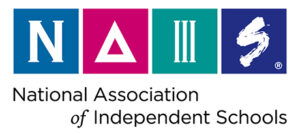Handing Students The Keys
by John Bluestein, Lower School Program Head
Over the last 20 years in education, great strides have been made to move beyond the “sage on the stage” mentality of past generations, and the phrase “student-centered” has become the norm in school literature. Many schools, however, have yet to master how to truly engage students in ways that are meaningful to them. We need to find ways to move from student-centered to student-driven, and all it takes is trusting kids enough to hand them the keys.
Project-based learning, experiential or expeditionary learning, inquiry, and student-written rules are all examples of useful ways to give students a voice in their schools and in their work. At our first elementary gathering last week, we asked the students to consider how we can best be stewards of our community. We split up into class groups to focus on the communal spaces around campus that they felt needed guidelines. Students discussed the use of each space and how that may dictate what our bodies and voices should be like in that space, as well as ways to keep the space safe, clean, and functional for all. Each class shared their ideas and will be helping to create agreed-upon guidelines for the school. By engaging students in the work of establishing community norms and expectations, we show them that they are trusted, and that we believe that they can handle the responsibilities of leading and designing their own learning environment. This same concept carries through to integrated units of study where academic skills are best learned in contexts that are compelling and meaningful to students.
We recognize that this is a work in progress. For most of their young lives, children have been relieved of most responsibilities by their parents and teachers. From cleaning up after them to packing their backpacks every morning to helping them with homework, adults continuously teach our kids to not be responsible. When they arrive in class, many students expect to be told what to do, how to do it, and be helped if they have trouble. The only way to help students develop a sense of responsibility for their own learning is to give them more control of it. At Friends, we work to do this with students as early as preschool so that they are better prepared to achieve inspirational things as older students.
There will likely be frustrating challenges and failures along the way for students, but it takes challenge and failure to rise to new heightened expectations. There will also likely be uncomfortable moments for teachers as they relinquish some control to their students. We know that we must find a way to put our organized, prepared, often linear-thinking selves in the passenger seat and embrace the position of navigator. Give our student drivers the keys, ask them where they want to go, and help them get there by pointing out the various routes and possible detours. We must resist the temptation to grab the wheel or slam on the brakes because it is the creative, optimistic, anything-is-possible attitude of children that pushes forward the bold ideas of innovation. Sometimes we need to simply buckle up and hang on while our students lead us on adventures we couldn’t possibly have planned.
Fifteen years ago, a then 12 year old, Adora Svitak gave this great TED talk that still stands up today. It reminds us that there is so much adults can learn from children and that the work of a progressive school is to continually recognize and respect the ideas of students.






